Premiere - The Return: When Juliette Binoche Transformed a Premiere into a Lesson in Cinema and Humanity
By Mulder, Paris, Pathe Palace, 16 june 2025
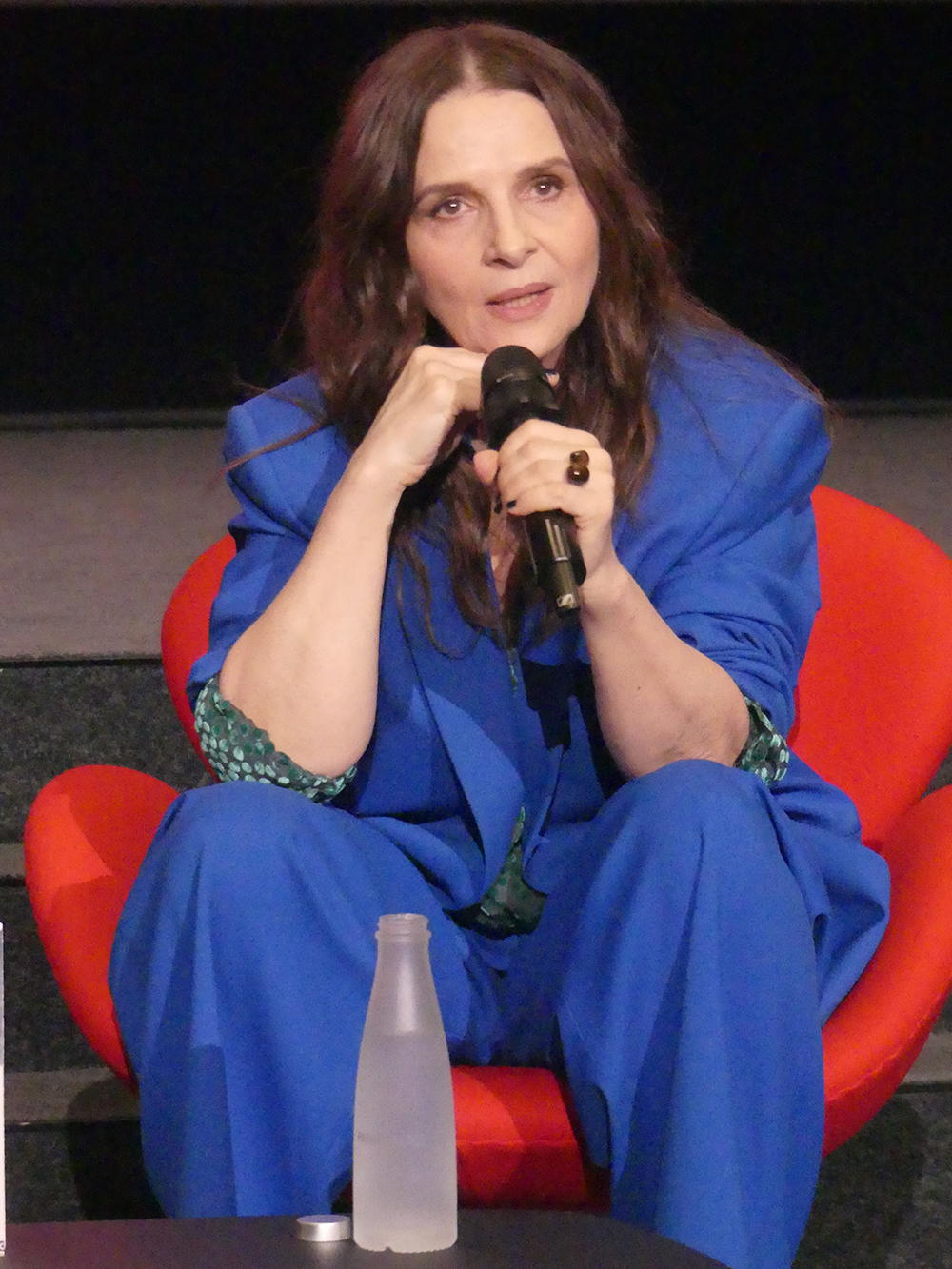
At the Pathe Palace in Paris, on June 16, 2025, something quietly monumental took place. Before the French premiere of The Return, the latest and perhaps most daring film by director Uberto Pasolini, the audience was offered a rare treat: a masterclass with Juliette Binoche, hosted by journalist Anne-Claire Cieutat. In front of an enraptured crowd, Juliette Binoche, serene and luminous, looked back on her life in cinema, sharing insights from her extraordinary career that stretches from Jean-Luc Godard and Krzysztof Kieślowski to Michael Haneke and Abbas Kiarostami. Watching selected excerpts from her films and plays, one couldn’t help but marvel at the breadth of her artistry. But perhaps most striking was the sense of quiet resolve that has defined her path—an actress who has always chosen introspection over spectacle, who found new resonance in Homer’s Odyssey not only through her role in The Return, but through the simple act of reading the ancient text to her teenage son.
That emotional honesty forms the very backbone of The Return, a film of profound restraint and searing clarity. Freely adapted from the final chapters of Homer’s epic, this cinematic reimagining refuses to tread the familiar ground of heroism and grandeur. Instead, Uberto Pasolini, alongside co-writers Edward Bond and John Collee, crafts a quiet, haunting meditation on aftermath—on what happens when the legend ends and the man comes home. Far from the muscular tropes of epic cinema, this is a deeply personal odyssey, almost monastic in its aesthetic, filmed with a kind of reverent stillness by cinematographer Marius Panduru. There are no monsters here, no grand battles. Just a broken man named Ulysses, portrayed with devastating humility by Ralph Fiennes, stepping ashore to find his kingdom occupied, his son grown, and his wife a ghost of herself, still fiercely standing in a palace full of vultures.
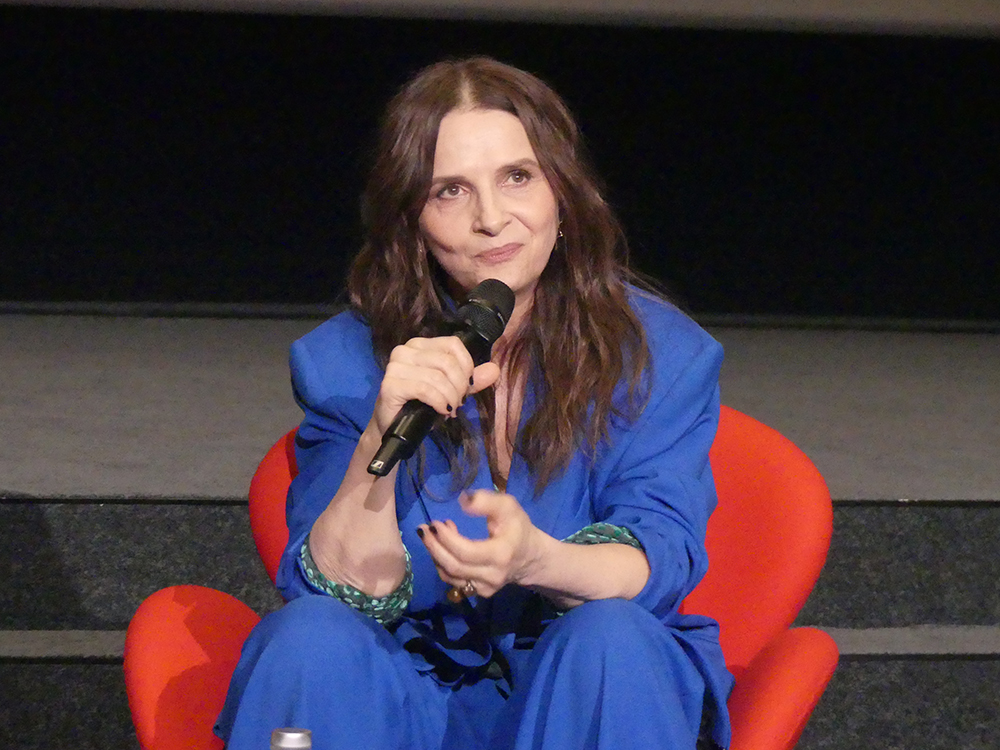
The creative reunion of Ralph Fiennes and Juliette Binoche, nearly three decades after The English Patient, unfolds not with nostalgia but with new emotional terrain. Their chemistry is still intact, but it has aged, weathered, deepened. Here, they don’t fall into each other’s arms; they circle one another like wary strangers. Ralph Fiennes, in a performance almost entirely sculpted through posture and gaze, transforms Ulysses into something seldom seen on screen: a war veteran rendered speechless by guilt and absence. His body is a metaphor, twisted and lean, as he moves through the skeletal remains of Ithaca. The only creature that recognizes him without hesitation is his dog, a faithful companion who dies upon seeing his master return—a scene that lands like a dagger through the heart.
Opposite him, Juliette Binoche turns Penelope into a figure of immovable strength and quiet devastation. Her performance is a lesson in how much can be said with silence. This Penelope is not just a woman who waited; she is a woman who resisted. Her years of solitude and vigilance have made her formidable, and Juliette Binoche conveys this with aching precision. Watching her stand amidst the suitors—chief among them a chillingly bureaucratic Marwan Kenzari as Antinous—is to witness an internal war as potent as any fought with swords. Her interactions with her son, Charlie Plummer’s Telemachus, also carry a special resonance. Plummer finds just the right balance between adolescent confusion and righteous urgency, embodying a youth torn between myth and man.
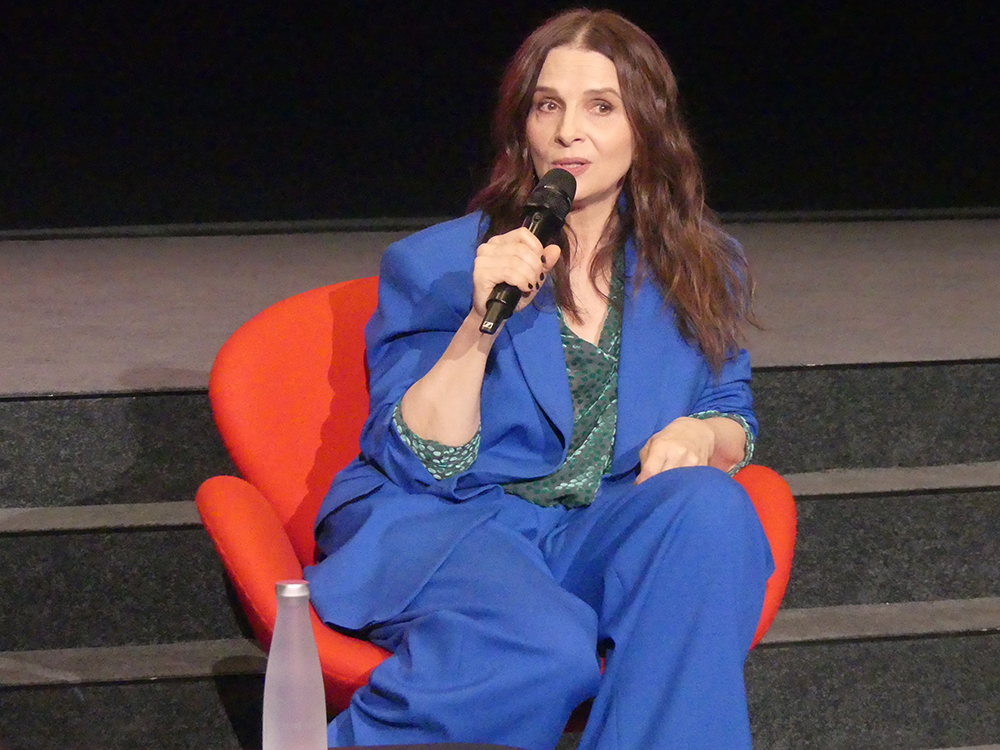
What is perhaps most revelatory about The Return is its radical simplicity. Uberto Pasolini strips the film of cinematic embellishments, relying on natural light, long takes, and the trembling silences of characters caught in emotional suspension. This ascetic approach asks something rare of its audience: patience, empathy, attention. The climactic archery contest, a sequence that could have been framed with bombast and blood, unfolds like a funeral rite—inevitable, silent, necessary. Even Rachel Portman’s score avoids crescendo, her minimalist themes whispering beneath the surface like distant tides. The result is an atmosphere that feels not only timeless but sacred.
This emotional and philosophical restraint extends into the film’s underlying ideas. As Uberto Pasolini noted in his production notes, The Return is a film about the consequences of conflict—not just the scars on bodies, but the invisible rifts in families, the slow erosion of intimacy, the quiet death of once-glorious ideals. Co-writer Edward Bond, who passed away shortly before the film’s release, viewed the project as a deliberately anti-patriarchal, anti-epic work. That spirit pervades every frame. There are no heroes here, only people picking through the rubble of their memories, their identities, their home. In this way, The Return becomes a metaphor for every soldier who comes back to find that they no longer recognize the place they fought for—or the people who waited.
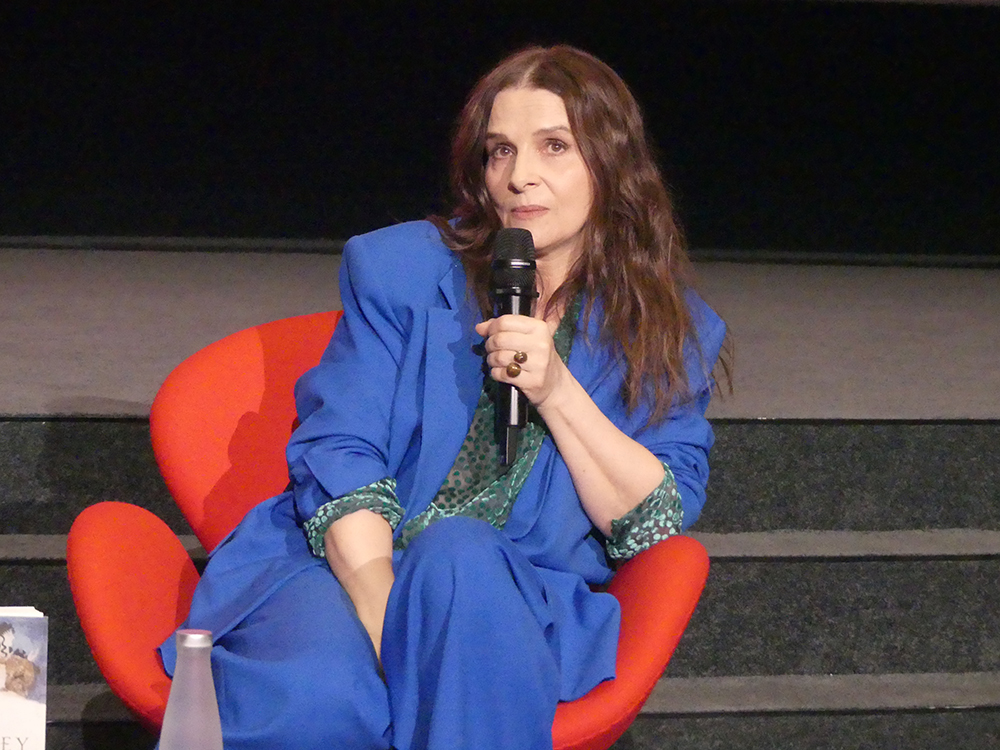
In the Paris masterclass that preceded the screening, Juliette Binoche spoke candidly about what drew her to the project. It wasn’t nostalgia, she said, nor the chance to reunite with an old co-star. It was the opportunity to inhabit a woman shaped by time, by grief, by an extraordinary act of endurance. Listening to her speak, it was impossible not to see how closely her career has mirrored that same ethic—choosing the difficult roles, the quiet stories, the human truths. From Three Colors: Blue to Certified Copy, from Caché to The Taste of Things, Juliette Binoche has consistently refused easy categorization. In The Return, she offers yet another masterclass, not only in acting, but in emotional truth.
Ultimately, The Return is not just a film—it’s a cinematic elegy, a meditation on the fragility of memory and the impossibility of true homecoming. It is a work that demands—and deserves—stillness. And in a cinematic landscape increasingly dominated by noise, spectacle, and speed, that feels like a radical act of faith. Anchored by the magnetic quietude of Ralph Fiennes and Juliette Binoche, and directed with unwavering grace by Uberto Pasolini, The Return reminds us that sometimes the greatest journeys end not with triumph, but with recognition—the simple, shattering realization of who we were, and who we have become.
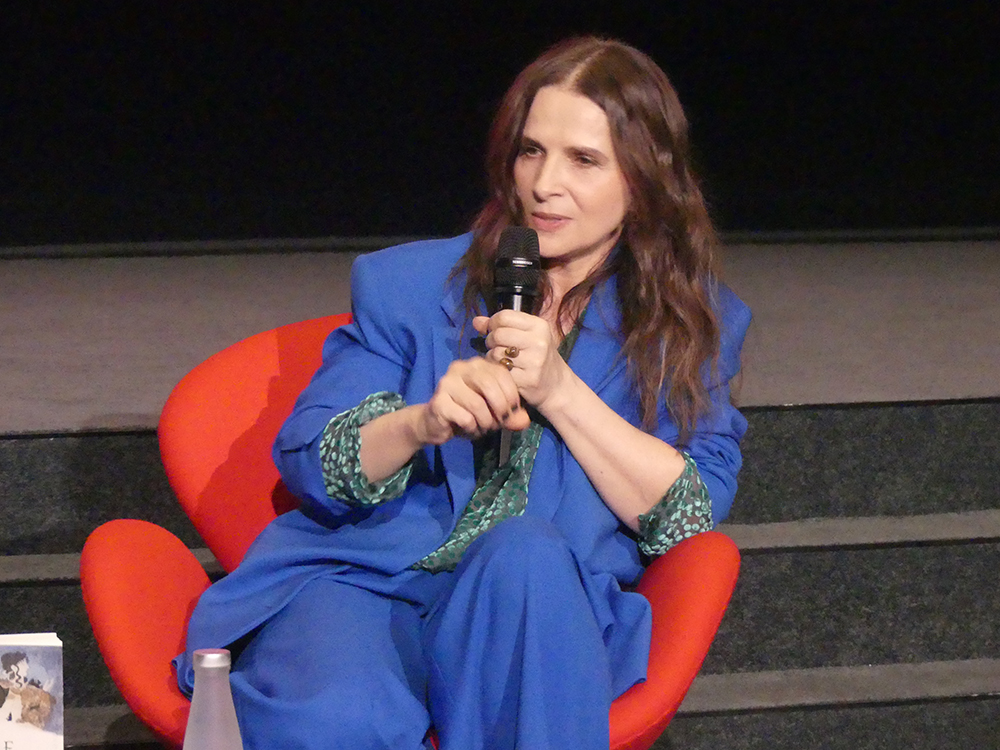
You can discover our photos in our Flickr page
Synopsis :
Returning from the Trojan War after 20 years away, Ulysses washes up on the shores of Ithaca, his former kingdom. His wife Penelope, who has remained faithful, lives there as a prisoner in her own home, rejecting all suitors to the throne. Their son Telemachus, who has never known his father, becomes an obstacle to those who want to seize power.
The return
Directed by Uberto Pasolini
Produced by James Clayton, Uberto Pasolini, Konstantinos Kontovrakis
Written by John Collee, Edward Bond, Uberto Pasolini
Starring Ralph Fiennes, Juliette Binoche, Charlie Plummer, Marwan Kenzari, Ángela Molina, Tom Rhys Harries, Amir Wilson, Moe Bar-El Elatus, Jamie Andrew Cutler Polybus, Jaz Hutchins Hippotas, Matthew T. Reynolds , Amesh Edireweera Leocritus, Pavlos Iordanopoulos Stratius
Music by Rachel Portman
Cinematography : Marius Panduru
Edited by David Charap
Production companies : Picomedia, Rai Cinema, Heretic, Ithaca Pictures Inc., Kabo Productions, Marvelous Productions
Distributed by Maverick Distribution (France), Bleecker Street (United States)
Release date : December 6, 2024 (United States), June 18, 2025 (France)
Running time : 118 minutes
Photos and video : Boris Colletier / Mulderville

